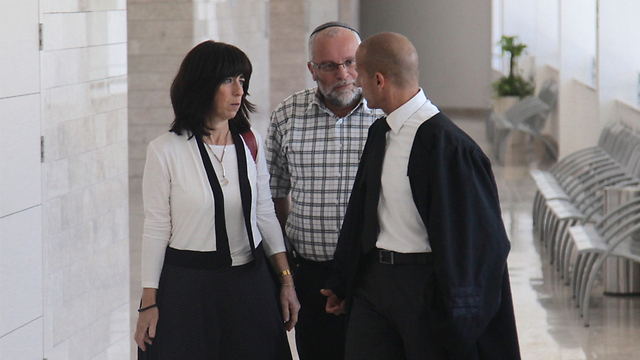
The parents of Jewish administrative detainee Eviatar Slonim, who holds an Australian passport, are seeking help from the Australian embassy on their son's behalf.
According to Slonim's parents, he has not been sentenced since his arrest in August and no explanation has been given for his detention.
"We are Australian citizens and therefore are turning to you in order to express our horror and worry about how an Australian citizen is being treated," they wrote in their letter.
"Our son has not committed any crime and does not deserve to be behind bars. Please help our family in any way that you can, so that Israel will fulfill its moral and democratic duties," the letter continued.
Slonim's arrest followed the murder of the Dawabshe family in an arson attack in Duma at the end of July. Mordechai Meyer and Meir Ettinger were arrested at the same time as Slonim. Meyer was released around two weeks ago but Ettinger, who is thought of as the number one priority for the Shin Bet's Jewish division, remains in administrative detention. It has been claimed that both are members of illegal organizations.
Ze'ev and Gila, Slonim's parents, claim that the indictments in the Duma arson prove that their son has no connection to the incident or other investigations of Jewish terror. They therefore argue that this should allow for his release, especially because Meyer has been let out.
Slonim is known to the national crimes unit in the Judea and Samaria District Police. He has previously been indicted for throwing stones at a Palestinian home and has been served an administrative order barring him from the West Bank.
His parents have said that at the time of the Duma attack, their son was with them on holiday in the north and since his administrative order had been working on a farm with no connection to acts of Jewish terrorism.
In response to the appeal of Slonim's parents, the Shin Bet maintained that there is clear and significant information that points to his being a security threat.
"Slonim's case has been subject to a full judicial review before the president of the district court and an additional review by the Supreme Court, which approved his administrative detention due to the danger he poses to the security of the state and its citizens," the agency said.


















